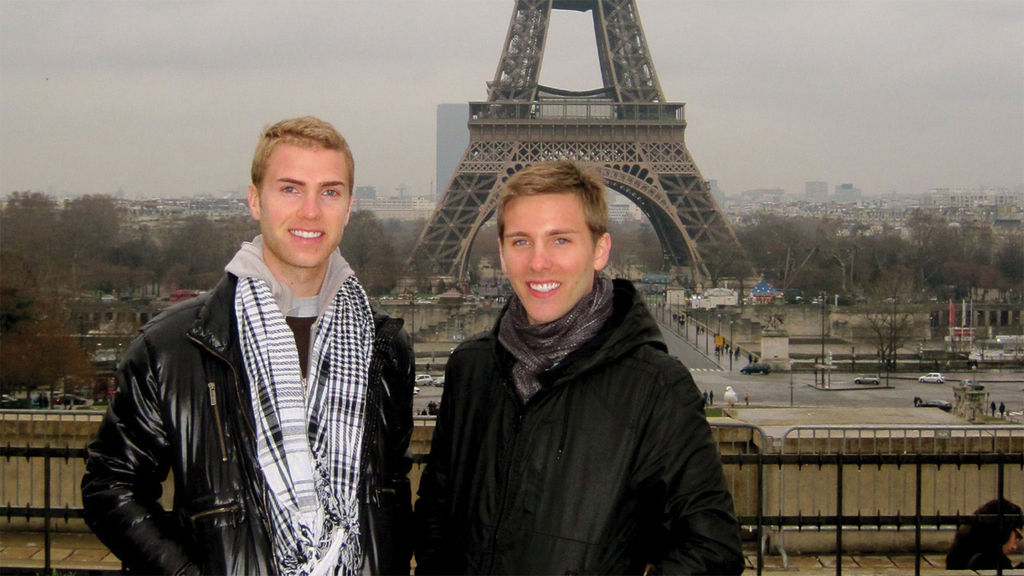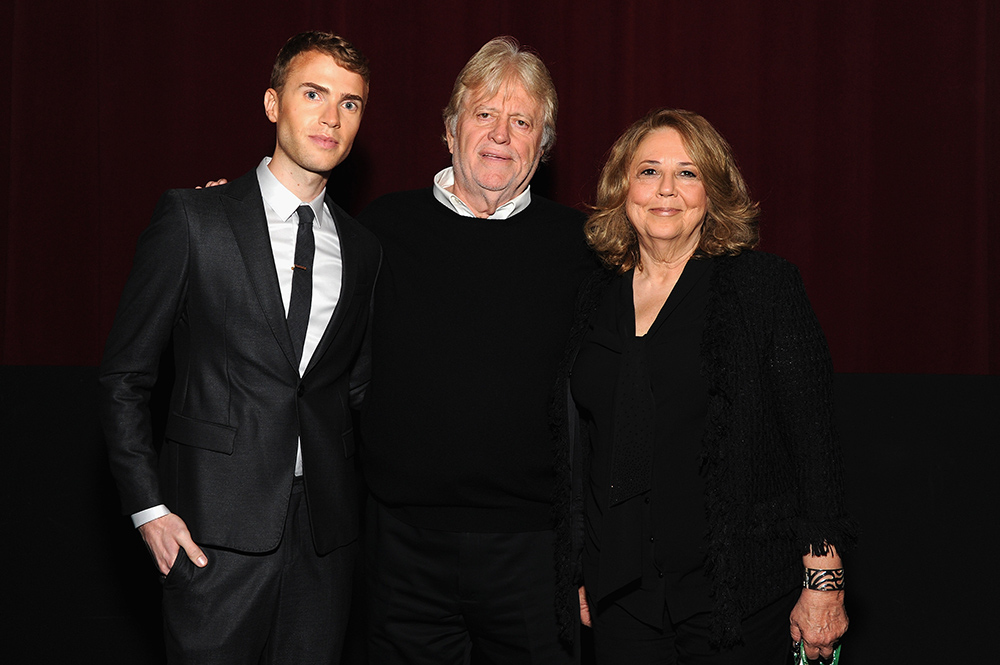
Linda Bloodworth-Thomason has a simple agenda with her new documentary Bridegroom: "We want to make rednecks cry."
But that's just the beginning. The film — which documents the tragic love story of Shane Bitney Crone and his partner Tom Bridegroom — is also a testament to why marriage equality matters. "We don't feel that we can change another mind," Bloodworth-Thomason told BuzzFeed. "We're just trying to change a heart now. We think sentiment does that really well."
Sentiment is not in short supply in Bridegroom, which is — at times — a gut-wrenching portrayal of grief. The film documents the history of Tom and Shane, two Christian boys from small towns who fell in love in Los Angeles. Tom died in 2011, the victim of an accidental four-story fall, and Shane was prohibited by Tom's family from attending his funeral.
Over the next year, Crone filmed his grieving process. On the anniversary, he uploaded his story to YouTube with the title "It Could Happen to You." The video went viral and inspired Bloodworth-Thomason to reach out.
"I called him, even though I didn't know him well," she recalled, "and I said, 'Why don't you come in and let's talk, because I think this could be a larger story.'"
Crone was willing to help bring his tragedy to the big screen after receiving overwhelmingly supportive responses to his YouTube video.
"There was, of course, negative feedback from people," he said. "But the positive response from people who were against marriage for everyone, and then messaging me to let me know the YouTube video changed their minds … For me, knowing there was that response to the YouTube video and hoping that the film had a fraction of that response from people, it would definitely be worth it."
View this video on YouTube
Shane's "It Could Happen to You" video has reached more than 3.5 million views.
That doesn't mean it was easy. Crone was actively involved in the filmmaking process, which meant going through footage from some of his darkest moments. As a viewer, seeing his on-screen grief is difficult to endure; it's hard to imagine how it must have been for Crone to relive it.
"At the beginning, it was rather challenging, just allowing them to see footage of me that I didn't really think anyone would really see," he conceded. "But throughout the course of this process and with the YouTube video, it actually made me feel better allowing people to see that side of me. And the whole process was healing."
Bloodworth-Thomason commended Crone's commitment to the project.
"I think he's so brave to not only expose his life, but to revisit the biggest trauma of his life," she said. "Day after day, to do that, it's such a brave thing to do. I have nothing but respect for him for that."
Crone's involvement is essential to Bridegroom's success: There is an intimacy here rarely achieved by documentaries. And that's not to diminish Bloodworth-Thomason's work as a writer and editor — her narrative helps push the film past home movies.

The political message feels almost secondary, but perhaps that comes from the understanding of marriage as a basic human right. For someone with a more traditional worldview, Bridegroom might well be a push in the right direction: There's no denying the love between Shane and Tom. At times, it's overwhelming.
"It's love lost, and it's really hard to take," Bloodworth-Thomason said. "Real love lost."
After the Bridegroom premiere, Crone said he was approached by audience members who just wanted to hug him and make sure he was OK. It's a valid reaction, and he appreciates the response.
"For me, that's amazing just to have people that feel that comfort level and want to support me," he said. "They don't know me, but they feel like they know me."
Of course, not all the response has been positive. Crone said that while he tries to ignore the hateful comments, he has the hardest time with those from well-meaning religious people trying to save him.
"That's what hurts," he said. "It's really upsetting because I know that they mean well, and I don't want to offend them. It's just sad."

Meanwhile, Tom's parents have not seen the film. Neither Crone nor Bloodworth-Thomason anticipates that they ever will. When the filmmakers reached out to Tom's parents to participate, they refused to respond.
One of Bridegroom's strengths is that it doesn't vilify Tom's parents, instead letting their behavior speak for itself. As the film explains, Tom's father threatened Shane with violence if he attended Tom's funeral. Shane wasn't even mentioned in the memorial service, despite their six-year relationship.
"We did not demonize them in any way," Bloodworth-Thomason noted. "In fact, I think we were pretty nice to them."
Indeed, as infuriating as Tom's family's treatment of Shane is, it inspires sadness as much as anger. The fact that they chose not to participate in the film is a regrettable conclusion to their side of the story.
"I just hope that people walk away not just angry and wanting horrible things to happen to his family," Crone said. "I hope they walk away seeing the bigger picture."
Because it's not only Tom's parents: Ignorance and hatred, as the film reminds us, are sadly not an individual problem. It's likely that the bigger picture of marriage equality will propel Bridegroom forward — not to mention into a wider release. It's the slice of personal tragedy, however, that makes the movie impossible to shake.

